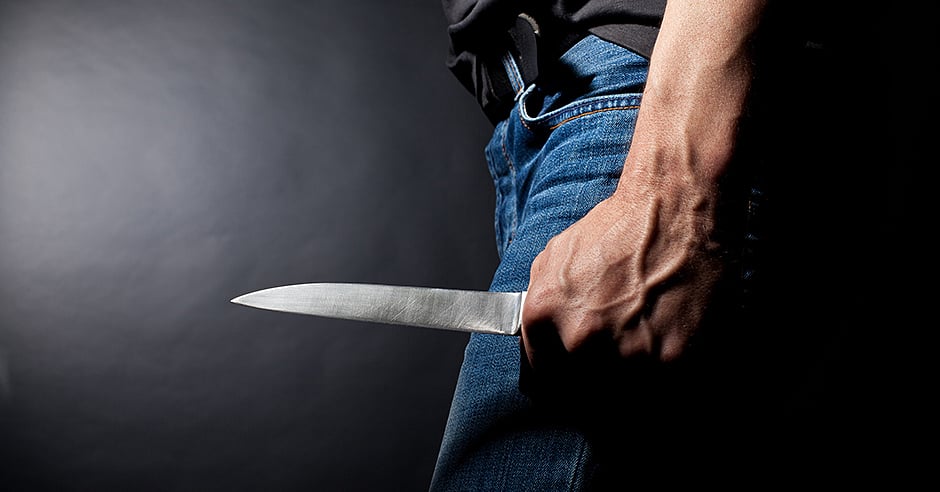In the vast and varied world of culinary tools, few items are as intriguing and practical as the folding knife. Revered by chefs and kitchen professionals for its versatility and convenience, this tool has an illustrious history that dates back centuries. But who invented the folding knife, and how did it become an essential component of every kitchen? Let's delve into the fascinating journey of this indispensable tool.

The Dawn of the Folding Knife: A Historical Perspective
The origins of the folding knife are shrouded in mystery and intrigue. While there isn't a specific individual who can be credited with its invention, archaeological evidence suggests that the earliest folding knives date back to the Iron Age, around 600-500 BC. These ancient tools were primarily used for everyday tasks, demonstrating the timeless appeal of a knife that could be safely tucked away.
As civilizations advanced, the folding knife evolved in both design and utility. Notably, during the Roman Empire, folding knives became a popular choice among soldiers and travelers. The portability and safety provided by a blade that retracted into its handle were revolutionary for the time, allowing for easy carriage and accessibility.
The Evolution of Design and Material
With the advent of new materials and forging techniques, the design of folding knives continued to improve. In the Middle Ages, the invention of the slip-joint mechanism allowed the blade to lock in place, significantly enhancing its safety and functionality. This innovation was a game-changer, allowing kitchen professionals and outdoor enthusiasts alike to trust in the reliability of their tools.
By the 17th and 18th centuries, folding knives had become a staple in many households across Europe. The advent of steel blades and wooden handles added durability and aesthetic appeal, making these knives both functional and fashionable. This era saw the rise of various regional designs, each boasting unique features and craftsmanship.
Folding Knives in Modern Times
Today, the folding knife is an essential tool for kitchen professionals and outdoor enthusiasts alike. Modern designs incorporate advanced materials such as stainless steel and titanium, offering superior strength and corrosion resistance. Ergonomic handles and precision blades cater to the needs of chefs who rely on their tools for precision cutting and efficiency.
The versatility of folding knives is further enhanced by the incorporation of multi-tools. Swiss Army knives, for example, have become iconic for their ability to integrate multiple functions into a single, compact design. This innovation has transformed the folding knife from a simple blade to a multifunctional tool that can tackle a wide range of challenges in the kitchen and beyond.
The Cultural Impact of Folding Knives
Beyond their practical applications, folding knives hold a significant cultural and artistic value. Many collectors and enthusiasts are drawn to the intricate designs and craftsmanship that go into creating these tools. Limited edition models and custom-made knives are highly sought after, reflecting the deep appreciation for the artistry involved in their making.
Folding knives have also found their way into popular culture, often depicted as quintessential tools for adventurers and survivalists. Their portrayal in movies and literature has only added to their allure, cementing their status as both a practical tool and a symbol of self-reliance.
Folding Knives: An Indispensable Tool for Kitchen Professionals
For kitchen professionals, the utility of a folding knife extends beyond its portability. These knives offer precision and control, essential for tasks ranging from slicing and dicing to intricate garnish work. Their compact design allows chefs to maintain a clutter-free workspace, a crucial factor in fast-paced kitchen environments.
Furthermore, folding knives are often preferred by traveling chefs who require reliable tools that can be easily transported. With the right care and maintenance, a quality folding knife can last a lifetime, making it a valuable investment for any culinary professional. For more information on traveling with folding knives, explore [this guide](https://knives.shop/blogs/kitchen-knives/traveling-with-a-folding-knife).
Choosing the Right Folding Knife
When selecting a folding knife, it's essential to consider the specific needs and preferences of the user. For kitchen professionals, factors such as blade material, handle design, and locking mechanism play a critical role in determining the overall performance and ease of use. For further insights into different types of knives and their applications, visit [Knivesandtools](https://www.knivesandtools.com/en/ct/pocket-knives-and-fixed-blade-knives.htm).
Quality brands often offer a range of options tailored to different culinary tasks, ensuring that chefs can find a tool that perfectly matches their requirements. Whether it's a sleek, minimalist design for precision work or a robust, multi-functional model for versatility, the right folding knife can significantly enhance a chef's efficiency and creativity in the kitchen.
Conclusion
The history and evolution of the folding knife are a testament to human ingenuity and the enduring appeal of a tool that seamlessly combines form and function. While the question of who invented the folding knife may remain unanswered, its impact on culinary practices and beyond is undeniable. As kitchen professionals continue to seek out tools that offer both durability and versatility, the folding knife remains a timeless choice that bridges the gap between tradition and innovation.

FAQ
Q1: Why are folding knives popular among chefs?
A: Folding knives are favored by chefs for their versatility, precision, and portability. They allow for easy storage and are ideal for both kitchen and outdoor use.
Q2: What are the key features to consider when buying a folding knife?
A: Key features include blade material, handle design, locking mechanism, and overall durability. It's important to choose a knife that aligns with your specific culinary needs.
Q3: How should I maintain my folding knife for optimal performance?
A: Regular cleaning, sharpening, and proper storage are essential for maintaining a folding knife. Avoid exposing it to harsh conditions and ensure the blade is dry before folding.
This article contains affiliate links. We may earn a commission at no extra cost to you.


























